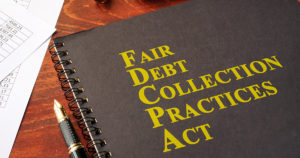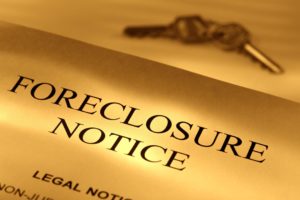No April Fools: Supreme Court Narrows Definition of Debt Collector
Mon Apr 1, 2019 by Oppenheim Law on Florida Foreclosures, Foreclosure Defense & Foreclosure Law
Another Power Play for the Multi-Billion Dollar Banking Industry.
The United States Supreme Court has now rendered a unanimous decision in the case of Obduskey v. McCarthy & Holthus, LLP, finding that law firms who enforce a security interest such as a mortgage (as opposed to directly collecting a debt) are not debt collectors under the Fair Debt Collection Practices Act. The ruling is based on a slanted interpretation of the plain language of the statute, by the highest court, in creating yet another power play for the multibillion dollar banking industry.
The Background
The Facts: Set in Colorado, the borrower defaulted on his mortgage, and the lender, Wells Fargo, attempted to foreclose. Although Florida is a judicial foreclosure State (meaning, that a foreclosure action must be filed with the Court to start the action), Colorado does not require the filing of a case in order to start foreclosure proceedings.

No April Fools: Supreme Court Narrows Definition of Debt Collector
Wells’ Fargo’s law firm sent the borrower a notice of default and intent to file a non-judicial foreclosure. The borrower in turn, invoked the provision under Fair Debt Collection Practices Act which provides that if a consumer disputes the amount of a debt, the debt collector must cease collection until it obtains verification of the debt and mails a copy to the debtor. The firm nevertheless initiated the non-judicial foreclosure action and the borrower sued the firm for failure to comply with the Fair Debt Collection Practices Act. The firm argued that it is not a debt collector and therefore not subject to the myriad of limitations imposed by the Fair Debt Collection Practices Act. The Supreme Court agreed.
The Ruling: The Supreme Court first defined a debt collector under the statute: “any person . . . in any business the principal purpose of which is the collection of any debts, or who regularly collects or attempts to collect, directly or indirectly, debts owed or asserted to be owed or due another.” This general purpose language is important because a foreclosure action, that is, enforcement of a security interest, would in and of itself seem to be a “collection of a debt” and at the very least, “indirectly.” Not so, according to the Supreme Court.
Law firms, banks, servicers, and any “person” that would fall under the definition of “debt collector” under the Fair Debt Collection Practices Act, would be subject to a variety of rules limiting their ability to collect the debt; that is, they would be required to give the initial Miranda warning by informing the consumer upfront that “this is an attempt to collect a debt and any information may be used for that purpose,” and otherwise refrain from abusive collection practices.

FDCPA Fair Debt Collection Practices Act
But the Supreme Court’s analysis included other plain language of the statute in the limited purpose definition, which states: For the purpose of 15 USC 1692(f)6, the term debt collection also includes any person or business the principal purpose of which is the enforcement of security interests. The highest court opined that Congress’s inclusion of this clarifying language, in this limited section of the Fair Debt Collection Practices Act, supported that it intended only Section 1692(f), and not the entire Act, to apply to enforcement of security interests. Ultimately, it ruled that the general purpose of the Act was applicable to debt collection, and not enforcement of security interests.
In a move that once again favors the powerful banking industry, the U.S. Supreme Court seems to have dissected the character of the actual proceedings in order to find that a non-judicial foreclosure is not collection of a debt, but rather enforcement of a security interest; and the Fair Debt Collection Practices Act is applicable to “debt collectors,” and not to enforcers of a security interest (such as a law firm seeking to enforce a security interest).

Florida Foreclosure
How does this relate to foreclosures in Florida?
Even the United States District Courts have historically found that the Fair Debt Collection Practices Act has never excluded foreclosure actions, or enforcement of a security interest, from its purview. In fact, the very reason an action to enforce a security interest is filed, is as inducement for payment, hence debt collection. A security interest is the very leverage used to collect payment the same as the wage garnishment laws induce payment on a credit card debt. For now, this case has limited application which does not apply in Florida foreclosures, because Florida is a judicial foreclosure state: The case essentially eliminates law suits against law firms who are pursuing foreclosures on behalf of banks, in non-judicial foreclosures.
In Florida, in order to foreclose the mortgage, the lender must hire a law firm, and file a judicial action. In this action to enforce the security, the lender will also retain the right to seek a deficiency against the borrower, that is, to pursue collection of a debt personally against the borrower who signed the promissory note.
While Florida, a judicial foreclosure state, is currently not bound by this recent ruling, it is yet another indication that the courts favor the powerful lender institutions, notwithstanding the lack of logic. When the courts attempt to apply this illogical reasoning to judicial foreclosures, rest assured the Oppenheim team will be one of the first to file an Amicus Brief.
What does this all mean?
The idea that foreclosing on one’s most valuable asset so it can be sold at a foreclosure auction does not constitute debt collection is at best, puzzling, and at worst, disingenuous in my humble opinion. Notably, Justice Sonia Sotomayor believed a law firm can be both a debt collector and an entity enforcing a security interest, and that the real issue in the Obduskey case was more so the abusive practices, and not the definition of debt collector.
From the Trenches,
Roy Oppenheim
Oppenheim Law | Foreclosure Attorney Fort Lauderdale
2500 Weston Rd #404
Fort Lauderdale, FL 33331
954-384-6114


Leave a Reply